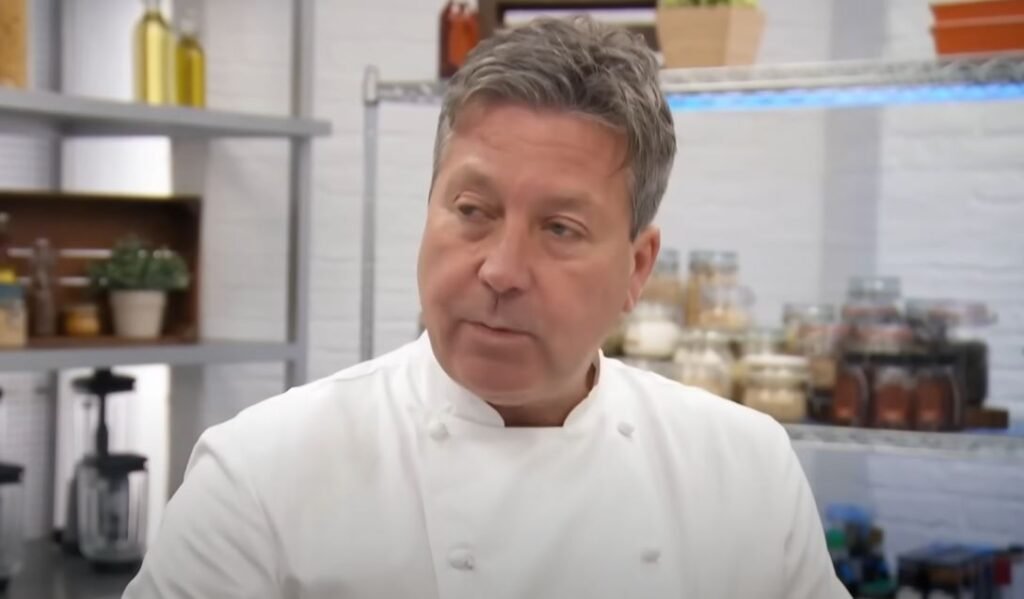
Despite being one of the BBC’s most well-known presenters, John Torode’s name is missing from the organization’s annual pay list, which raises questions about his income. The company makes public the amount it pays well-known celebrities who make more than £178,000 every summer, but Torode is not included in the roll call. The rationale is simple and illuminating: Torode does not receive his salary directly from the BBC, in contrast to Zoe Ball or Gary Lineker. Rather, his contract is managed through MasterChef’s production business, Banijay UK, which deftly circumvents BBC transparency regulations.
Torode’s estimates are less accurate but just as convincing, whilst Gregg Wallace’s salary has periodically been reported to be about £400,000. His estimated net worth of £8 million is especially intriguing, as it was accumulated through the sale of restaurants he founded and later sold, cookbooks that became best-sellers, and endorsement deals that took use of his notoriety on television. Torode has thus proven to have a very successful approach to turning culinary knowledge into a diverse brand.
Table of Bio and Career Information
| Category | Details |
|---|---|
| Name | John Douglas Torode |
| Born | 23 July 1965, Melbourne, Australia |
| Profession | Celebrity Chef, Restaurateur, Television Presenter |
| Known For | Co-host of MasterChef UK with Gregg Wallace |
| Nationality | Australian-British |
| Career Highlights | MasterChef judge since 2005; author of multiple cookbooks; TV appearances on This Morning |
| Estimated Net Worth | £8 million (sources: The Independent, Wales Online) |
| Salary Disclosure | Not published on BBC salary list; paid via Banijay UK |
| Business Ventures | Restaurants in London, cookbooks, endorsements |
His pay is unclear, which suggests a bigger problem. The BBC’s direct accountability has been greatly diminished by the outsourcing of talent contracts through production companies. Every year, viewers experience a remarkably similar frustration: they are given a list that specifies Gary Lineker’s £1.35 million, but they are left to speculate about sums for well-known individuals like Torode. Given that MasterChef has successfully exported to dozens of countries and regularly draws millions of devoted viewers, this selective transparency contributes to the perception of a double standard.
However, Torode’s financial adventure extends beyond his covert BBC salary. Prior to selling them, his previous London eateries reportedly earned millions of dollars, guaranteeing both financial stability and artistic flexibility. His income has significantly increased over time when combined with consistent television appearances and book royalties, illustrating how celebrity chefs use television as a means of achieving long-term success. In many ways, his path is quite similar to that of Nigella Lawson, who turned her broadcast presence into long-lasting cookbook success, or Gordon Ramsay, who used TV stardom to gain international restaurant domination.
Torode’s own public image was unavoidably tarnished by the scandals surrounding Gregg Wallace’s sudden termination in 2025 due to suspected misbehavior. He was accused of making a racial comment, which he vehemently rejected. These instances serve as a reminder of the severe fragility of reputations, which are the foundation of broadcasting’s financial stability. Such difficulties have the power to drastically alter revenue prospects for someone like Torode, whose fortune is based on partnerships, media contracts, and public appearances.
More broadly, the continuous discussion concerning equity in British broadcasting is embodied by Torode’s hidden pay. The data were widely publicized when Zoe Ball’s wages from Radio 2 were drastically reduced from £950,000 to just over £500,000 following her departure from the breakfast program. In contrast, Banijay’s contractual agreements have kept Torode’s funds hidden. Nick Robinson and Fiona Bruce both have yearly salary disclosures of £410,000 and £410,000, respectively, yet the co-host of one of the most popular shows in Britain is exempt from this scrutiny.
The ramifications go beyond statistics. Transparency is intended to reassure the public that funds are being used prudently by a license fee-funded organization. However, such trust is weakened by omissions like Torode’s. The BBC preserves operational flexibility by working with independent production companies, but it also protects well-known figures from the very responsibility that is meant to support the license fee.
The evidence indicates that Torode’s compensation is comparable to Wallace’s previously reported £400,000, albeit in the absence of concrete numbers. His £8 million fortune becomes remarkably evident when his other sources of income are taken into account. Even though he still lags far behind Gordon Ramsay’s empire, this puts him among the richer chef-presenters in Britain. His financial success demonstrates how MasterChef has evolved from a cooking competition to a venue for brand promotion and personal regeneration.
The BBC wage list has evolved into a yearly event. Predictable arguments are sparked by Gary Lineker’s supremacy, Naga Munchetty’s steady ascent, and Claudia Winkleman’s widely reported £450,000 Strictly salary. Ironically, John Torode’s absence from these discussions garners just as much attention as those individuals do. The fact that one of the most well-known primetime television presenters has his income protected while radio hosts and sports analysts are subjected to ongoing public criticism seems contradictory to many viewers.
